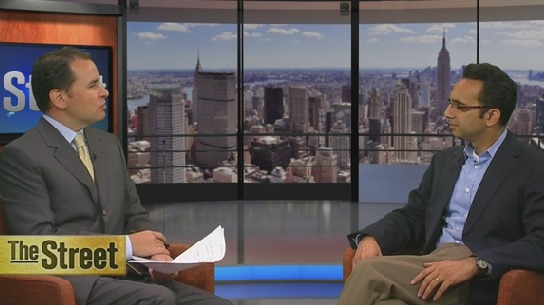Online marketplaces like Amazon and eBay have changed how consumers buy products and even disrupted the way traditional retail giants do business.
Now, red-hot online marketplaces like Uber and Airbnb are infiltrating the service industries, which account for 68% of the U.S. economy and four out of five jobs, according to CoachMarket CEO Glenn Laumeister.

Yet, the “mainstream” financial services industry has yet to really embrace this secular trend, perhaps due to its traditionally glacial pace of change and focus on personal relationships.
But it’s only a matter of time before individuals gravitate to online marketplaces for investing and managing their personal finances — in fact, they already are.
Here, the key challenges for the financial-services sector include improving the technology and the user experience to earn trust.
Eventually though, the investment management world will begin to catch up with retail in online marketplaces.
Secret sauce
Online investment advisers have made recent strides on the technology side. For example, some start-ups have built automated services using algorithms that allow individuals to purchase basic investment portfolios on websites or mobile devices.

Other firms have assembled investment marketplaces that let individuals invest right along human portfolio managers they may not otherwise have access to.
However, technology is only the first step in a longer journey.
“The secret sauce is not the technology, although that plays an important supporting role. It is the single-minded obsessive focus on solving one big universal problem for the buyers, and removing that friction that existed in transacting offline,” says Laumeister, the CoachMarket chief.
“For a service marketplace to gain customer traction and not just serve customers but delight them so they tell their friends, the marketplace must deliver on their secret sauce dramatically and consistently,” he adds.
Amazon CEO Jeff Bezos always talks about the company’s commitment to continually make the customer experience better, and online investment advisers can certainly take a page from his book.
An important piece is helping individuals find what they want easily and quickly.
“We see our customers as invited guests to a party, and we are the hosts. It’s our job every day to make every important aspect of the customer experience a little bit better,” Bezos says.
Transparency and curation
So can online investment marketplaces transform asset management?
Covestor CEO Asheesh Advani was recently interviewed by TheStreet.com and he discussed the importance of transparency and curation.

“We’re a technology company that has an asset management platform that connects individual investors with money managers online. Just like online marketplaces have brought comparison shopping to everything from buying retail goods on Amazon, to even buying shoes on Zappos, to buying furniture on Wayfair,” Advani explained.
“Who would’ve thought you’d buy shoes online? That behavior of things you thought would never go online through comparison shopping and value price comparison is going online. And that’s what we want to do for asset management,” he added.
Individuals are understandably wary of Wall Street and the stock market after the financial crisis.
That’s why there’s a craving for transparency and the ability to verify for oneself.
In the interview, Advani talked about how online marketplaces can help investors research individual portfolio managers and view their trading record. This helps them understand the manager’s strategy and compare performance to peers.
“As a marketplace, we always have a solution set that people are looking for,” Advani said.
Online marketplaces are curated platforms where investment managers are selected and monitored before they become available to investors, who can then see their track records (a fairly revolutionary concept itself.) It’s all about giving consumers choices to help them reach their financial goals.
We’re still in the early innings of how technology and digital communications will revolutionize how individuals manage their money. At some point, investors will be as comfortable with using online marketplaces to invest as they currently are with online banking and payment services.
Continue learning: Four reasons why digital marketplaces succeed or fail
—
Photo credits: Zhao and thebittenword.com via Flickr Creative Commons.



